- Home »
- Information »
- Amish Deer Tongue
Amish Deer Tongue
Lactuca sativa
An Amish heirloom lettuce known for its vigor and for its ability to withstand adverse conditions. Leaves have a distinctive, elongated shape, and a tasty, sharp flavor. Amish Deer Tongue also performs well as a cut and grow lettuce, where leaves can be harvested throughout a longer growing season while allowing the plant to keep producing. A looseleaf type.
Seed Availability
Seeds are not available for the Amish Deer Tongue. Please visit our seed store to view current selections. Seeds were last available in July 2017.
Days to Maturity
45-55 days.
Origin
Heirloom, Amish origin, unknown date.
Germination Info
Lettuce seeds are usually quite easy to sprout. Both the seeds and plants do best in slightly cooler weather, so plan on planting seeds when soil temperatures are below 70F.
1) Sowing seeds. Lettuce is amenable to direct sowing in the ground, but take care to protect for garden pests which will quickly eat or destroy a fragile seedling. For sprouting in containers, choose small containers or flats and plant seeds 1/4-1/2" deep in loose, well-draining soil. Soil temperature should be kept at 60-70F. Soil temperatures higher than 70F can inhibit germination and temperatures below 50F may do the same. If conditions are too warm but sprouting seeds is still desired, a trick is to put seeds in a wet paper towel, inside a ziplock bag. Put the bag into the refrigerator for 2-3 days then take the seeds out and sow. Properly sown seeds will generally germinate in 7-14 days.
2) Transplant/thinning. For direct sown seeds, thin seedlings to 8-12" apart, with rows up to 2-3' apart, to give mature plants room to spread out. For container sown seeds, wait until a few true leaves have developed and carefully transplant to desired location. If sprouted indoors, make sure to harden off seedlings for 3-5 days prior to transplanting. To harden off, move seedlings to a filtered light location outdoors where they can slowly adapt to sunlight and outdoor conditions.
3) Culture. Lettuce needs regular watering. Plants will grow best in loose, well-drained soils. Lettuce is very susceptible to nibbling by garden pests, particularly slugs and snails. Make sure to have proper slug barriers in place if slugs are a problem in your garden. Seeds can usually be stored for a minimum of three years.
Related Species
| Asteraceae - Lettuce | |||
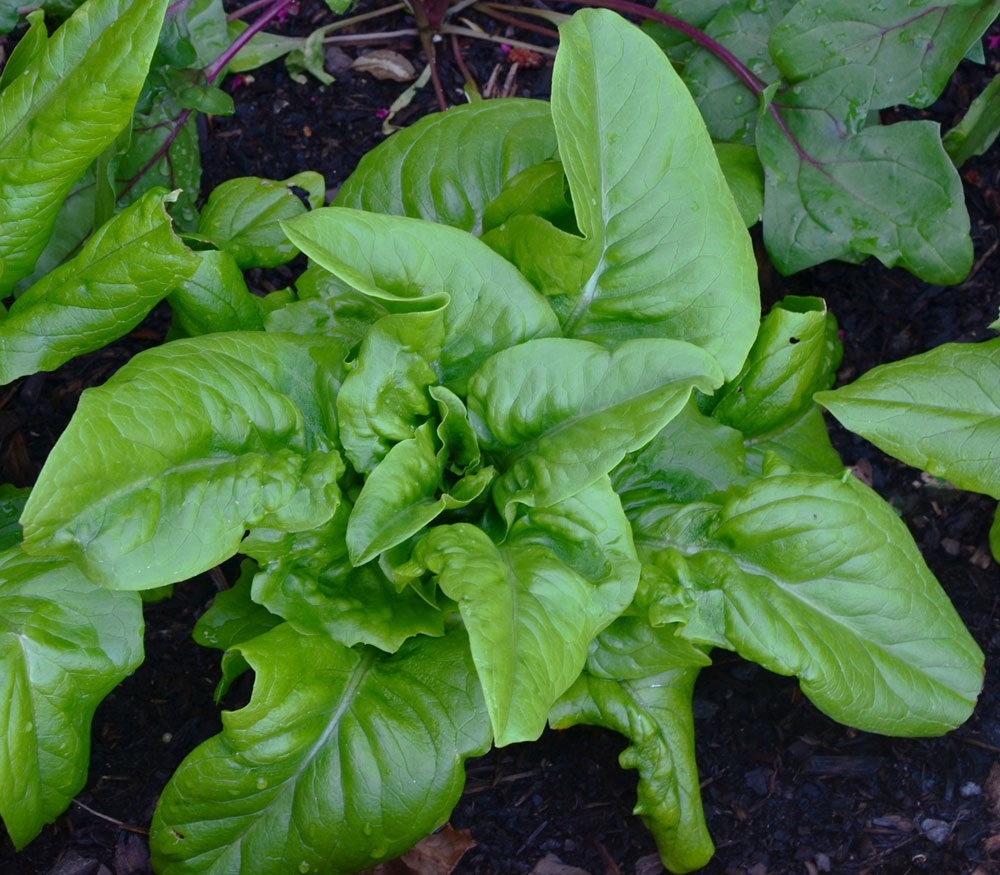 |
Amish Deer Tongue Lactuca sativa |
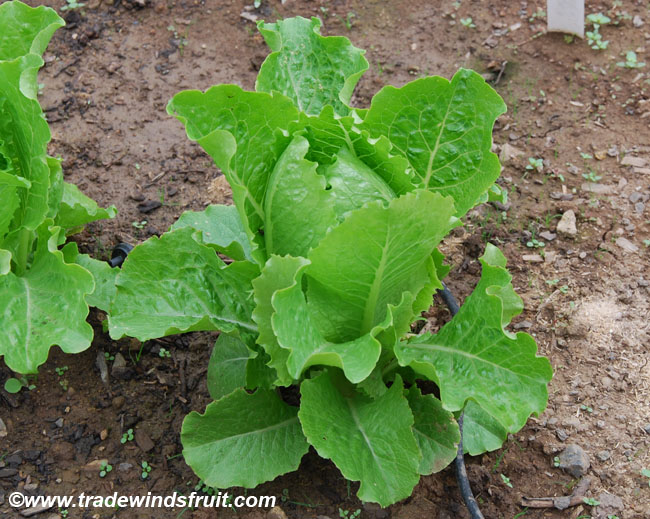 |
Crisp Mint Lettuce Lactuca sativa |
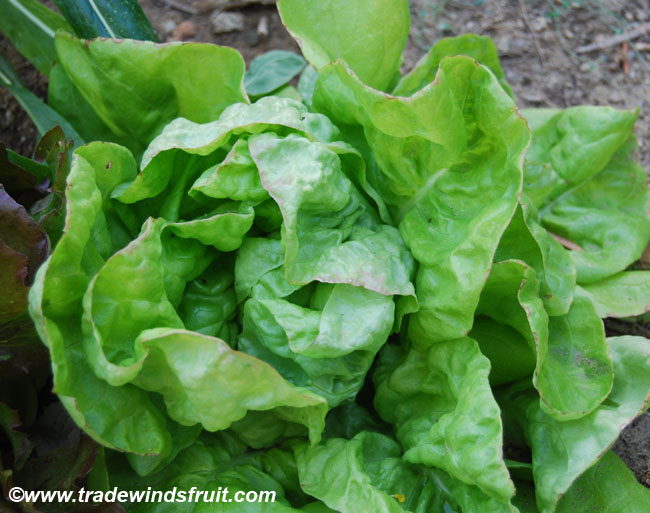 |
May Queen Lettuce Lactuca sativa |
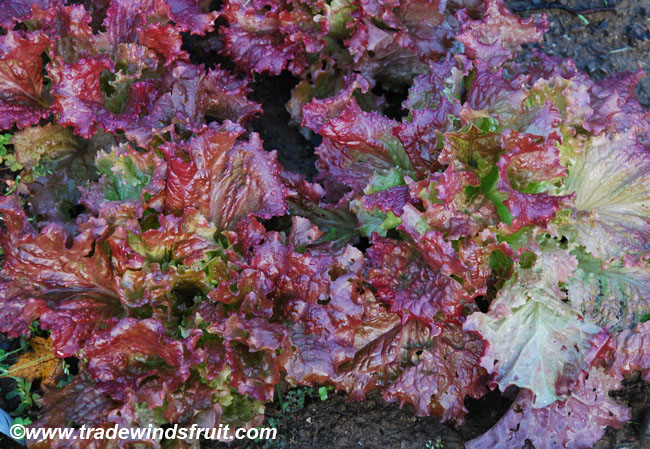 |
Red Fire Lettuce Lactuca sativa |
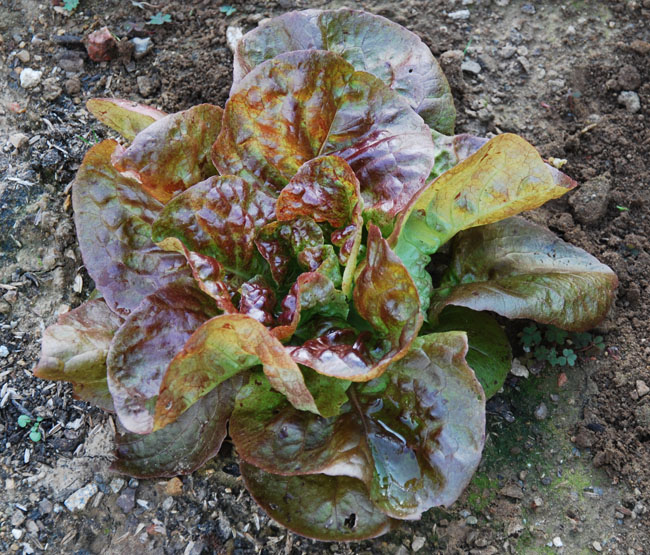 |
Red Yugoslavian Lettuce Lactuca sativa |
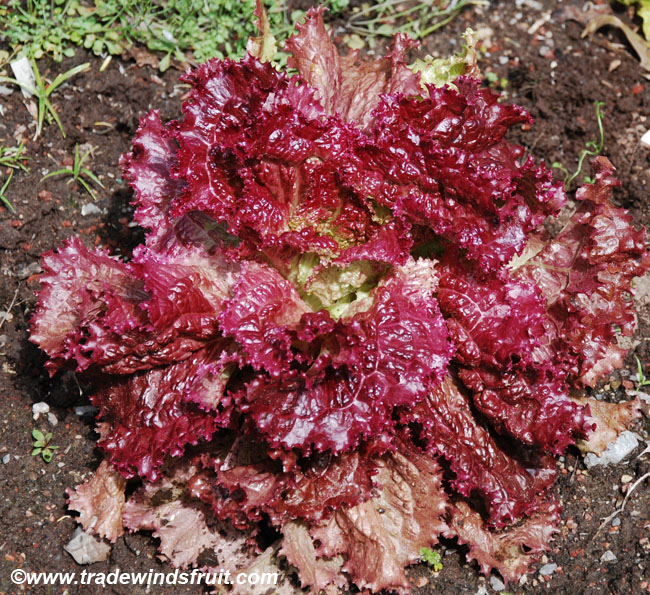 |
Rossimo Lettuce Lactuca sativa |
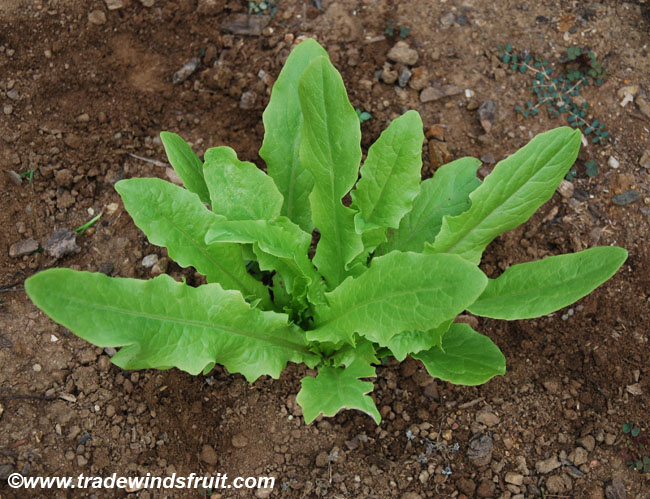 |
Sword Leaf Lettuce Lactuca sativa |
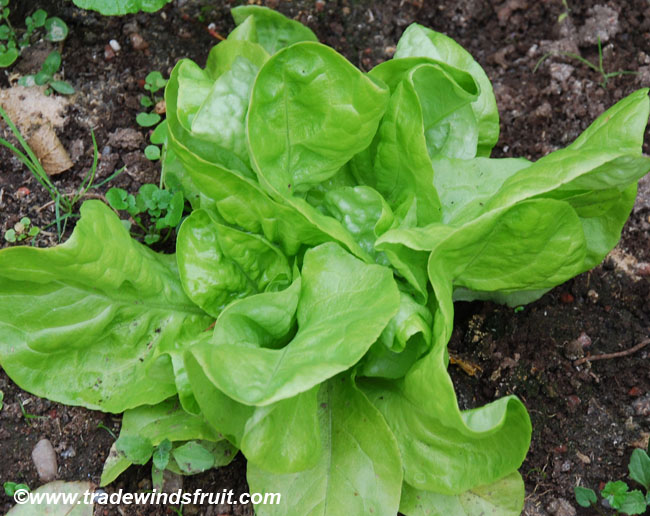 |
Tennis Ball Lettuce Lactuca sativa |
